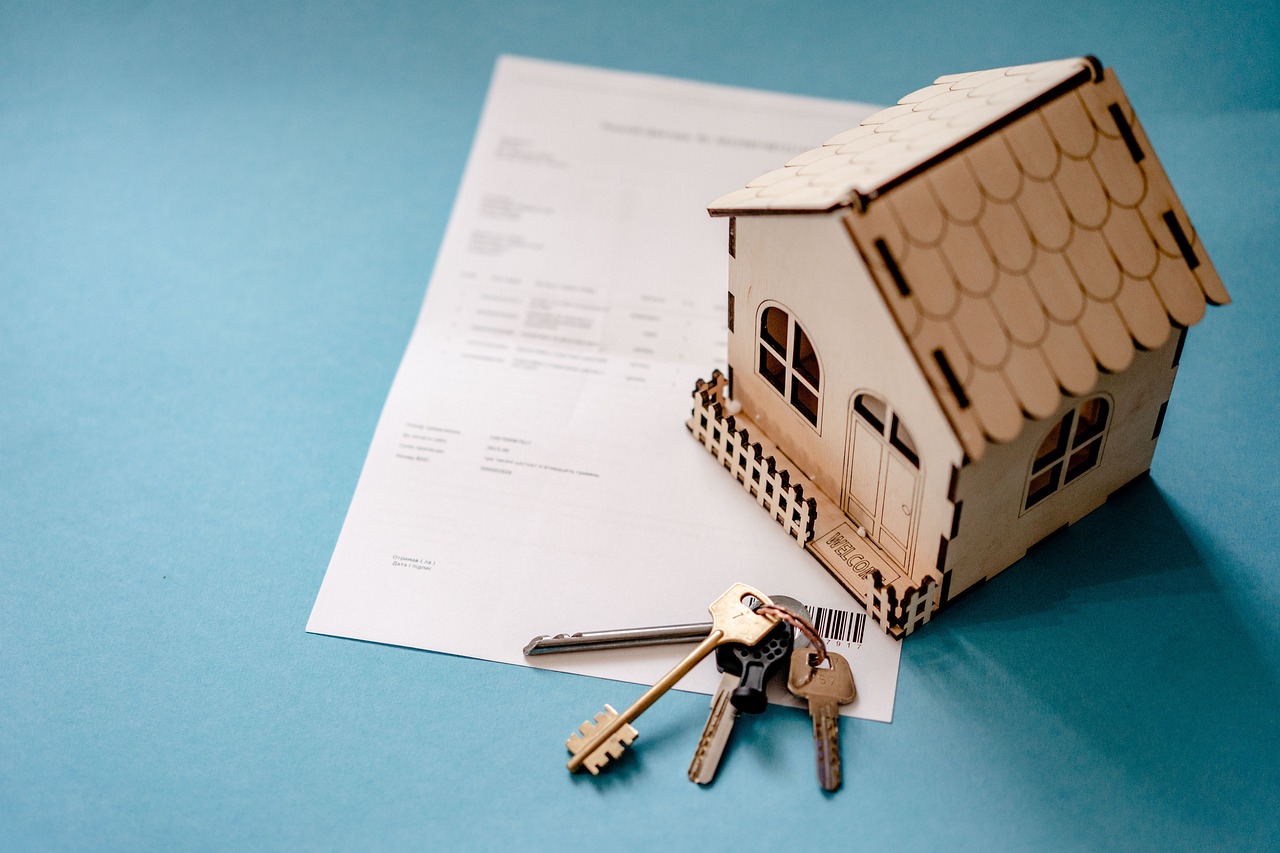What Are The Benefits Of Investing In Environmentally Sustainable Properties?
October 18, 2023 | by Catherine Jones

Are you a savvy investor looking to make a positive impact on the world while earning a healthy return on your investment? Then Investing in environmentally sustainable properties may be the perfect option for you. These properties not only offer financial benefits, but also contribute to a greener future by reducing energy consumption, minimizing waste, and promoting eco-friendly lifestyles. In this article, we will explore the numerous benefits of investing in environmentally sustainable properties, from cost savings and increased property value to the satisfaction of making a difference in the world. So, buckle up and get ready to discover the exciting world of sustainable property investment!
Lower operational costs
Energy efficiency
Investing in environmentally sustainable properties can lead to lower operational costs, especially when it comes to energy efficiency. Sustainable properties are designed with energy-saving features, such as high-quality insulation, LED lighting, and energy-efficient appliances. These features can significantly reduce the amount of energy needed to power the property, resulting in lower utility bills for the owner. Additionally, sustainable properties often employ renewable energy sources, such as solar panels, which further decrease reliance on traditional energy sources and reduce costs even more.
Water efficiency
Another area where environmentally sustainable properties can make a significant impact on operational costs is through water efficiency. Sustainable properties utilize various water-saving technologies and practices, such as low-flow toilets, rainwater harvesting systems, and efficient irrigation systems. By reducing water consumption, property owners can lower their water bills and contribute to water conservation efforts.

Reduced waste management costs
Investing in environmentally sustainable properties can also help reduce waste management costs. Sustainable properties focus on reducing waste generation through various practices, such as recycling programs, waste reduction initiatives, and composting systems. These practices can not only lower waste disposal costs but also promote a more sustainable and eco-friendly environment.
Higher resale value
Increasing demand for sustainable properties
As society becomes more environmentally conscious, there is an increasing demand for sustainable properties. Potential buyers and tenants are more likely to be attracted to properties that have environmentally friendly features and practices in place. This growing demand can result in higher resale value for environmentally sustainable properties, offering a significant return on investment for property owners.

Premium prices for environmentally friendly features
Properties with eco-friendly features often command premium prices in the real estate market. Buyers are willing to pay more for properties that offer energy-saving technologies, renewable energy systems, and sustainable materials. In addition to the financial benefits, investing in environmentally sustainable properties can also provide a sense of pride in contributing to a greener future.
Positive public image
Meeting corporate social responsibility
Investing in environmentally sustainable properties demonstrates a commitment to meeting corporate social responsibility. By prioritizing sustainability, property owners can showcase their dedication to protecting the environment and minimizing their carbon footprint. This commitment can enhance the overall image of the company, fostering positive relationships with stakeholders and attracting socially conscious partners and clients.

Improving brand reputation
A positive public image is crucial for any business or individual, and investing in environmentally sustainable properties can help improve brand reputation. By showcasing a commitment to sustainability, property owners can establish themselves as responsible and forward-thinking entities. This can attract like-minded individuals and businesses, enhancing the property owner’s credibility and opening doors to new opportunities.
Government incentives and support
Tax credits and deductions
Governments across the globe often provide various incentives to promote sustainable practices, including tax credits and deductions for investing in environmentally sustainable properties. These financial benefits can significantly offset initial investment costs and encourage property owners to adopt sustainable practices. By taking advantage of these incentives, property owners can maximize their return on investment and contribute to a more sustainable future.

Grant programs and financial support
In addition to tax incentives, government grant programs and financial support are often available for those investing in environmentally sustainable properties. These programs provide funding for energy-efficient upgrades, renewable energy installations, and other sustainable initiatives. By accessing these resources, property owners can further reduce their investment costs and accelerate the transition to a more environmentally friendly property.
Long-term financial stability
Less exposure to utility price fluctuations
Investing in environmentally sustainable properties can provide long-term financial stability by reducing exposure to utility price fluctuations. With energy-saving features and renewable energy systems in place, property owners can decrease their reliance on traditional energy sources. As utility prices continue to fluctuate, sustainable properties can maintain a stable and predictable energy cost, protecting property owners from sudden increases in utility bills.

Higher occupancy and tenant retention rates
Sustainable properties often attract environmentally conscious tenants who appreciate the eco-friendly features and practices. This increased demand can lead to higher occupancy rates and longer tenant retention, providing a stable income stream for property owners. Tenants are more likely to stay in a building that promotes a healthy and sustainable living environment, reducing turnover costs and ensuring a steady rental income.
Health and well-being benefits
Improved indoor air quality
Investing in environmentally sustainable properties can have significant health benefits for occupants. Sustainable buildings prioritize indoor air quality by using materials with low-VOC (volatile organic compound) emissions and implementing proper ventilation systems. These measures help reduce exposure to harmful pollutants and toxins, promoting healthier living spaces and improving the overall well-being of the occupants.
Enhanced occupant productivity and satisfaction
Sustainable properties also contribute to improved occupant productivity and satisfaction. Studies have shown that occupants of sustainable buildings experience higher levels of comfort, improved concentration, and increased productivity compared to traditional buildings. By investing in environmentally sustainable properties, property owners can create a conducive environment for their tenants, fostering a sense of well-being and satisfaction.
Mitigating climate change
Reducing carbon footprint
One of the most significant benefits of investing in environmentally sustainable properties is the contribution to mitigating climate change. Sustainable properties prioritize reducing carbon emissions through energy-efficient technologies, renewable energy sources, and sustainable practices. By actively reducing their carbon footprint, property owners can help combat climate change and create a more sustainable future for generations to come.
Preserving natural resources
Investing in environmentally sustainable properties also contributes to the preservation of natural resources. Sustainable properties employ resource-efficient technologies and practices, such as rainwater harvesting, efficient irrigation systems, and sustainable materials. By minimizing resource consumption and promoting responsible use, property owners play a crucial role in conserving natural resources and protecting the environment.
Regulatory compliance
Adherence to environmental regulations
Investing in environmentally sustainable properties ensures compliance with environmental regulations. Governments and local authorities impose various regulations and standards to promote sustainability and protect the environment. By investing in sustainable technologies and practices, property owners can ensure their properties meet these regulations, avoiding potential fines and penalties.
Avoidance of fines and penalties
Non-compliance with environmental regulations can result in hefty fines and penalties for property owners. By investing in environmentally sustainable properties, property owners can proactively address environmental concerns and minimize the risk of non-compliance. Not only does this protect the property owner financially but also demonstrates a commitment to responsible business practices.
Integration of sustainable technologies
Renewable energy systems
Investing in environmentally sustainable properties involves the integration of renewable energy systems. Solar panels, wind turbines, and geothermal systems are just a few examples of renewable energy sources that can be incorporated into sustainable properties. These technologies generate clean and renewable energy, reducing reliance on fossil fuels and minimizing the property’s environmental impact.
Smart home automation
Sustainable properties often leverage smart home automation technologies to optimize energy consumption and enhance occupant comfort. Smart thermostats, lighting controls, and automated shading systems can intelligently manage energy usage, minimizing waste and maximizing efficiency. The integration of these technologies not only improves sustainability but also provides convenience and a modern living experience for occupants.
Future-proofing against regulatory changes
Anticipating stricter environmental standards
Investing in environmentally sustainable properties ensures long-term viability by anticipating and preparing for stricter environmental standards. Governments worldwide are continually working towards more stringent regulations to combat climate change and promote sustainable practices. By investing in environmentally sustainable properties, property owners can position themselves ahead of these changes, avoiding costly retrofits and ensuring their properties remain relevant and compliant.
Ensuring long-term viability of the property
Future-proofing against regulatory changes ultimately ensures the long-term viability of the property. Sustainable properties are well-positioned to adapt to evolving regulations and market demands, avoiding potential obsolescence. By embracing sustainability, property owners can secure the value and marketability of their properties for years to come.
Investing in environmentally sustainable properties offers numerous benefits, ranging from lower operational costs to positive public image and long-term financial stability. By prioritizing energy and water efficiency, reducing waste management costs, and integrating sustainable technologies, property owners can not only save money but also contribute to a greener future. Additionally, the potential for higher resale value, government incentives, and improved occupant health and well-being make investing in environmentally sustainable properties a wise and rewarding decision. Furthermore, by mitigating climate change, ensuring regulatory compliance, and future-proofing against changes, property owners are able to secure the long-term viability and marketability of their investments. In a world that increasingly values sustainability, investing in environmentally sustainable properties is not only financially advantageous but also aligns with the responsibility to protect the planet and create a better future for all.
RELATED POSTS
View all


